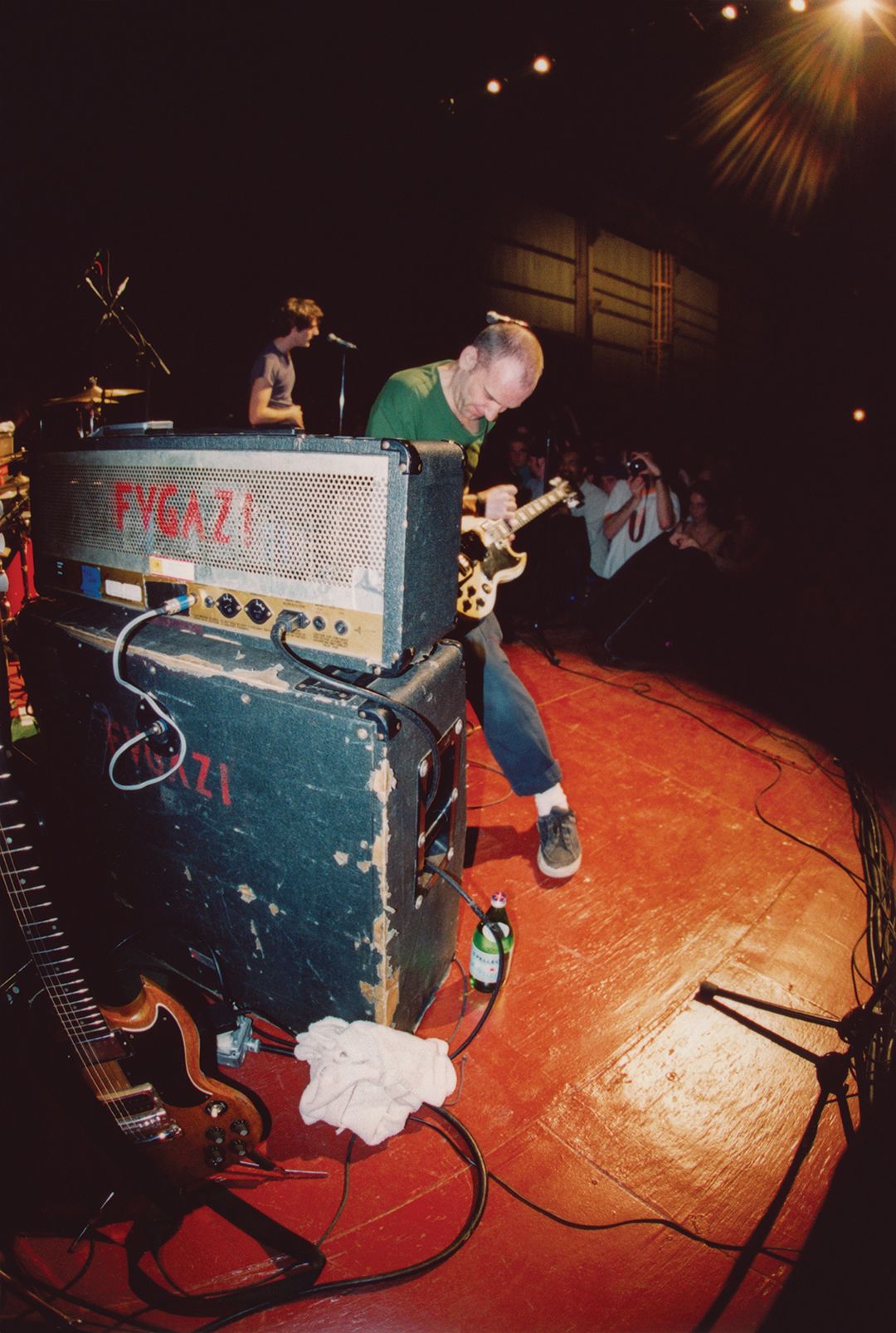Can an observer be a participant?
What's worth being documented and why.

Lately, I've been thinking a lot about documentation. Namely what we deem as worthy of being chronicled and what we let fall in the void of memory. The reason for this is twofold, but it's tied, basically, to one person: Ian Mackaye.
There's always been a challenge in writing about Ian and his various endeavors and it's that basically everything that's worth being said already has. Not only that, all those things were said by people far smarter than me, so the prospect of adding something new to the conversation feels both intimidating and, perhaps, unnecessary. But, nevertheless, I guess I'm going to try to.
The first thing that sent me down this track was the recent release of Dischord Records' First Six Records box set. Run by Ian and his former Teen Idles/Minor Threat bandmate Jeff Nelson, Dischord is arguably one of the most important independent record labels to have ever existed—full stop. What Dischord gave to the world was one of the purest examples of DIY ethics, as these two 18-year-olds took their music seriously enough to get records pressed, covers printed, and assemble them all by hand with a glue stick, then sell them at bargain bin prices. The result is some of the most impactful and influential hardcore records literally ever released. If you don't believe me, there's a reason that buying an original copy of one of these seven-inches would set you back something like $1,000 on a good day.
Now, the music contained therein has always been available on other formats, but for the label's 200th release, they felt it was only right to accurately reproduce these records for the first time in nearly 40 years. They ran pre-orders for a couple months and promised to produce as many as were ordered and, when they showed up on people's doors, there weren't six records in the box, there was a secret seventh one: The Slinkees, Who Cares? EP. By all accounts, this should have been Dischord's first release, as it was Ian and Jeff's band that predated all their much more impactful ones, but the band broke up and never made it to the point of recording these songs in an actual studio. Instead, it's a document of four teenagers playing embryonic hardcore in a Washington, D.C. basement on August 21, 1979. In lesser hands, these songs would have been lost to time—but they were in Ian's hands.
This brings me to my second point which, fittingly, is the Fugazi zine recently released by Ryan Russell and Tom Bejgrowicz. Conceived as a way to raise money for the Randolph County Animal Shelter in Alabama (go order this zine and help some animals, why don't ya?), the 16-page zine chronicles Fugazi's final trip to Birmingham, Alabama. It opens with the story Tom reaching out to Ian via email hoping that, for the first time in 11 years, Fugazi would come play in Birmingham. And while that's the kind of "come to Brazil" energy that would annoy most people, Ian basically responds with, "Sure, why not."
The zine, titled FVGAZI: Monday the 25th, feels like an appropriate document of the band as it neared the end of its life. Ryan's photos capture Fugazi as many remember them—passionate, energized, and thoughtful—but it also functions as a document of the band's legacy. Ian and, by extension, Fugazi found everything they did worthy of documenting, as the expansive Fugazi Life Archive offers digital recording of over 750 of the band's 1,000 shows with corresponding flyers, photos, and details that allow you to basically relive the entire existence of the band in a way that only jam bands have really done otherwise. It's a truly remarkable thing to have just a click away at any given time.
But all these things have made me think more and more about the importance of documenting our current scenes and how, increasingly, it feels like that job gets taken for granted. We're truly blessed to live in a time where you can go to a show and, two days later, go on YouTube and find the full, professionally filmed set there for you to watch all over again—and trust me, I love that—but it makes me wonder about what gaps are developing because we just assume someone else will be there to do it for us. Surely, Ian didn't think that some practice recording made in August of 1979 would be a literal cultural artifact 43 years later, but clearly there was some impulse to hit record and then hold onto it all that time. Similarly, FVGAZI: Monday the 25th feels like a reminder that, while it could have felt like just another Fugazi show at the time, there were only 28 more of those left before the band went on hiatus—one that still lasts to this day.
The headline of this post is lifted directly from "Ex-Spectator," a song on Fugazi's final album, The Argument and it's something I think about often. In the moment, it may seem strange or even self-important to make note of every show your band plays, or to hold onto every flyer and set list as momentos of it all, but it's all part of the story of how this culture continues to evolve—often via experiences that maybe don't seem remarkable in the actual moment but end up feeling profound just a few years later. It's only then that you wish for something tangible to connect you back to it, long after it's faded from memory.

